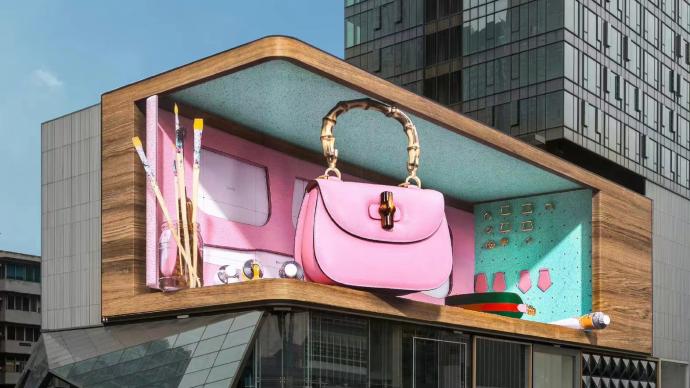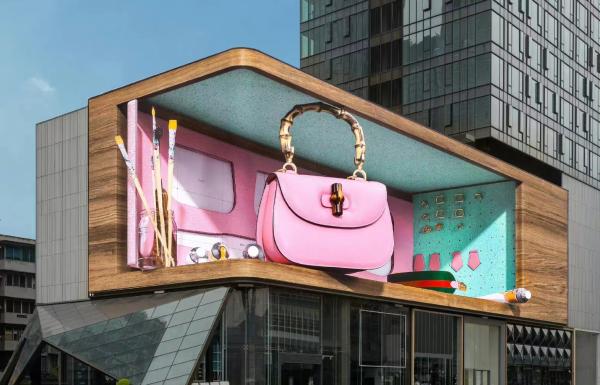
According to published reports, the three major luxury goods groups Kering, LVMH (Louis Vuitton) and Hermes (Hermes) all had a strong start to the year in the first quarter, but the epidemic still has a significant impact on luxury giants , of which Kering's shares have fallen 22% this year, while LVMH's shares have fallen 10%. At the same time, efforts to high-end and price increases have also become one of their common choices to deal with future uncertainties.
Recently, Kering, a French luxury goods group, released its financial report for the first quarter of this year. In the first three months of this year, the group’s sales reached 4.96 billion euros, a year-on-year increase of 21%, slightly higher than the 4.69 billion euros cited by Citibank analysts. generally expected.
Sales generated by Kering's directly-operated stores increased by 15% compared to the first quarter of 2021; online sales continued to grow during the quarter, accounting for 15% of total direct sales. Market performance in Asia Pacific fell 6%. The epidemic has had an impact on sales development and consumer sentiment in China. Asia Pacific was Kering's largest market last year, accounting for 38% of sales. As a core brand that the group is highly reliant on, Gucci accounts for more than half of Kering's annual sales. In the first quarter of this year, Gucci's sales reached 2.591 billion euros, a year-on-year increase of 20%, which has slowed down compared with the previous quarter. Investment bank Bernstein analyst Luca Solca said: "Group growth was overall 5.6% higher than expected in the quarter," noting that Gucci was "one step behind" consensus forecasts.
As a core brand that the group is highly reliant on, Gucci accounts for more than half of Kering's annual sales. In the first quarter of this year, Gucci's sales reached 2.591 billion euros, a year-on-year increase of 20%, which has slowed down compared with the previous quarter. Investment bank Bernstein analyst Luca Solca said: "Group growth was overall 5.6% higher than expected in the quarter," noting that Gucci was "one step behind" consensus forecasts.
Kering has been expanding Gucci's product range, focusing on high-end products, which they believe have relatively good customer appeal. In a conference call with analysts, the group said the outbreak in China had indeed slowed the brand's ability to attract new, younger customers.
However, Kering Chief Financial Officer Duplaix said it was too early to comment on Gucci's earnings forecast, noting that nearly a third of the group's store network is currently located in cities affected by epidemic restrictions.
"The fundamentals of China's luxury market remain intact," Duplaix emphasized in recent media communications, emphasizing the resilience of Chinese users' consumption after the epidemic, the growth of the middle class, and China's demand for luxury brands. Also under the Kering brand, sales of Yves Saint Laurent increased by 37.2% in the first quarter of this year, and sales of Bottega Veneta increased by 16.3%.
For Kering's brands, especially Gucci, the ability of local teams is crucial, because each market has its own characteristics. Earlier this month, Gucci named Laurent Cathala president of fashion in Greater China. Duplaix pointed out in a recent media conference call that there is room for price increases in some of the group's brands, including Gucci. At the end of the first quarter, Gucci raised prices on some mid-to-low line products.
Recently, Kering, a French luxury goods group, released its financial report for the first quarter of this year. In the first three months of this year, the group’s sales reached 4.96 billion euros, a year-on-year increase of 21%, slightly higher than the 4.69 billion euros cited by Citibank analysts. generally expected.
Sales generated by Kering's directly-operated stores increased by 15% compared to the first quarter of 2021; online sales continued to grow during the quarter, accounting for 15% of total direct sales. Market performance in Asia Pacific fell 6%. The epidemic has had an impact on sales development and consumer sentiment in China. Asia Pacific was Kering's largest market last year, accounting for 38% of sales.
 As a core brand that the group is highly reliant on, Gucci accounts for more than half of Kering's annual sales. In the first quarter of this year, Gucci's sales reached 2.591 billion euros, a year-on-year increase of 20%, which has slowed down compared with the previous quarter. Investment bank Bernstein analyst Luca Solca said: "Group growth was overall 5.6% higher than expected in the quarter," noting that Gucci was "one step behind" consensus forecasts.
As a core brand that the group is highly reliant on, Gucci accounts for more than half of Kering's annual sales. In the first quarter of this year, Gucci's sales reached 2.591 billion euros, a year-on-year increase of 20%, which has slowed down compared with the previous quarter. Investment bank Bernstein analyst Luca Solca said: "Group growth was overall 5.6% higher than expected in the quarter," noting that Gucci was "one step behind" consensus forecasts.Kering has been expanding Gucci's product range, focusing on high-end products, which they believe have relatively good customer appeal. In a conference call with analysts, the group said the outbreak in China had indeed slowed the brand's ability to attract new, younger customers.
However, Kering Chief Financial Officer Duplaix said it was too early to comment on Gucci's earnings forecast, noting that nearly a third of the group's store network is currently located in cities affected by epidemic restrictions.
"The fundamentals of China's luxury market remain intact," Duplaix emphasized in recent media communications, emphasizing the resilience of Chinese users' consumption after the epidemic, the growth of the middle class, and China's demand for luxury brands. Also under the Kering brand, sales of Yves Saint Laurent increased by 37.2% in the first quarter of this year, and sales of Bottega Veneta increased by 16.3%.
For Kering's brands, especially Gucci, the ability of local teams is crucial, because each market has its own characteristics. Earlier this month, Gucci named Laurent Cathala president of fashion in Greater China. Duplaix pointed out in a recent media conference call that there is room for price increases in some of the group's brands, including Gucci. At the end of the first quarter, Gucci raised prices on some mid-to-low line products.
Related Posts